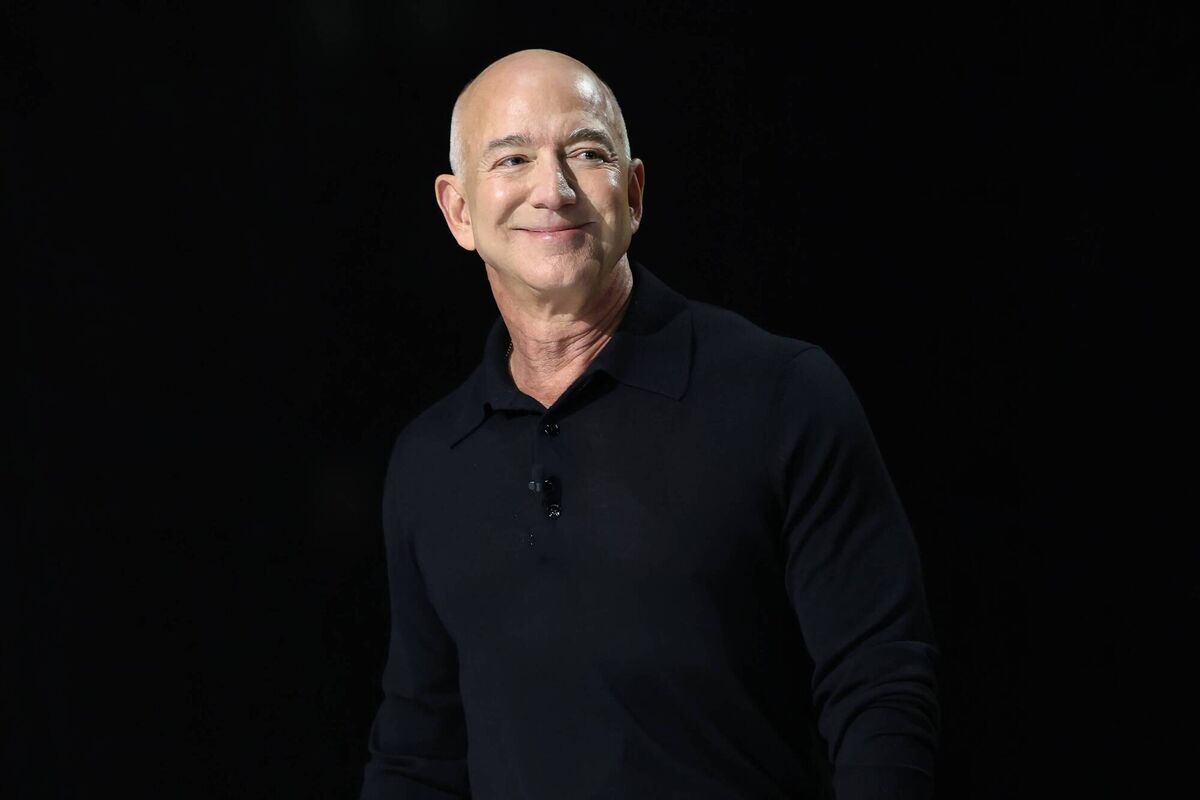Ann Telnaes is a Pulitzer Prize-winning cartoonist whose satirical images have skewered the famous and powerful at the for the last 16 years. Not any longer.
Last week, she resigned from the paper when its owner, Jeff Bezos, refused to let her publish a cartoon of Mr Bezos and other business tycoons kneeling before a statue of president-elect Donald Trump.
In doing so, Bezos, who also owns Amazon and has an estimated net worth of almost $200bn, performed the latest act in a trend of billionaire appeasement to the incoming US president that the cartoon itself set out to depict.
It is standard practice for business leaders to make changes when there is a shift in the policy environment. Companies rotate their public affairs teams to bring in lobbyists who speak the language — and have the phone numbers — of the new people in power.
When Donald Trump won the US presidency in 2016, the lift-hailing company Uber, which was then facing a series of regulatory and public relations challenges, quietly exited one-time Obama campaign manager David Plouffe as its head lobbyist.
Companies also often make public pronouncements that align with the political mood. Again in 2016, a large number of US corporations, including Ford, announced they were onshoring manufacturing jobs back to the States, something Trump had campaigned on.
This time around, however, we are seeing a level of supplication to the incoming president that feels different. A long line of US corporate executives, particularly from tech, are queuing up to bow down to the president-elect, who has been holding court at his Florida residence since November.
Many have been to Mar-A-Lago to meet with Trump, and have come away with lighter pockets — Mr Bezos, Meta’s Mark Zuckerberg, Open AI’s Sam Altman, Apple’s Tim Cook as well as Google and Microsoft are all reported to have donated $1m each to Trump’s inauguration fund, a pot of money that is expected to reach a record breaking $200m.
Marc Benioff, chief executive of tech company Salesforce, ensured Time magazine, which he also owns, honored Trump by awarding him “person of the year.”
It is this week’s moves by Meta’s Zuckerberg that may prove to be the most consequential act of corporate knee-bending to date. On Tuesday, Zuckerberg announced the gutting of Meta’s fact-checking infrastructure, and a weakening of its policies and systems to prevent abuse and harassment.
This decision will have sweeping consequences for the integrity of information and the safety of users on the company’s platforms like Facebook and Instagram, which are estimated to have more than three billion active daily users around the world.
It follows key personnel changes at the company, with British centrist Nick Clegg leaving and former George Bush staffer Joel Kaplan stepping up as the new chief lobbyist for the firm.
There are many reasons why we might be seeing this trend. Some of it is no doubt simple business interests. There are key decisions in terms of tax imminent that could impact bottom lines — Goldman Sachs estimated Trump’s tax proposals would benefit corporate America to the tune of some $250bn.
Many tech firms seek government contracts, with the reporting two of Elon Musk’s companies account for at least $15.4bn in government contracts over the past decade.
The broader tenor of Trump’s new administration is likely encouraging business leaders to swallow any remaining pride and embrace appeasement. Trump has promised a particular brand of vendetta politics, to use his control of the US justice system to go against those who he sees as going against him.
We saw this most explicitly when last summer he threatened Mark Zuckerberg with life in prison if he felt Meta’s platforms were unfair to him in the 2024 elections.

There are also particular dynamics when it comes to Trump and tech that might be raising the stakes. Zuckerberg’s remarks indicate he sees Trump as an ally in pushing back on EU tech regulation, which has already loaded large costs on the company in terms of compliance and fines, like the almost €800m fine the European Commission levied against Facebook under anti-monopoly rules in November.
Trump promises to be a friend to parts of the tech industry, including cryptocurrency and artificial intelligence. The latter industry is at a crucial and highly cutthroat stage of its development, with pretty much every tech firm — Meta, Google, Microsoft, Open AI, Apple, Salesforce, and Elon Musk’s xAI — vying for dominance.
The battle for AI supremacy is as much about the policy environment as it is about the technical competitiveness of large language models. What emerges in terms of industry regulation, as well as trade relations and access to all important computing power, are likely to be deciding factors in who gains the spoils from an anticipated AI dominated future. And closeness to the White House might be the deciding factor in who ends up on top.
This is where Trump’s alignment with Elon Musk is spooking rival tech executives. The owner of Tesla, X, SpaceX and xAI not only donated a reported $250m to the Trump campaign, but he has moved into Mar-a-Lago, renting a cottage on the grounds.

The rivalry between Musk and Zuckerberg is intense — they publicly challenged each other to a cage fighting match in 2023. That physical fight never happened, and these puerile displays of macho egoism wouldn’t matter if these men didn’t hold enormous power — power they now appear to be yielding to an increasingly authoritarian sounding Trump.
A decade and a half of market concentration and the growth of the algorithmic driven feed has made social media extraordinarily influential in global discourse. Changes made by Meta to, for example, permit abuse of minorities, have worldwide implications, especially in fragile contexts where online incitement has and continues to cause real world violence and harm, places like Myanmar, Ethiopia, Brazil.
The financial power that has concentrated in the tech industry has also created unfathomable wealth among this small group of men, who increasingly resemble oligarchs, or as some have started calling them, the “broligarchs”.
As we have seen at the and magazine, this includes owning publications, and commitments to Chinese walls between business and media interests are crumbling.
The power is also cultural. In announcing his dismantling of Meta’s fact-checking infrastructure this week, Mark Zuckerberg went to great lengths to echo Trumpian talking points about the unfair bias of those who seek to find and represent the truth.
He calls attempts to counter hateful rhetoric “censorship”. In embracing this language, he is empowering authoritarians around the world who have long made dangerous claims that apolitical accountability for misdeeds is actually a form of corruption.
It is in fighting back against those authoritarians that we see real courage, those standing up, speaking the truth and refusing to be cowed.
Genuine bravery is not a cage match, it is what people like the ’s Ann Telnaes did last week — not self-censoring, but instead simply depicting the truth, and then putting their livelihood and comfort on the line to stand up for it.
In this, Telnaes demonstrates the first rule of Timothy Snyder’s advice for resisting tyranny, which many more among the US business elite could stand to learn from: “Don’t obey in advance”.
- Liz Carolan works on democracy and technology issues and writes at TheBriefing.ie
This post was originally published on here







